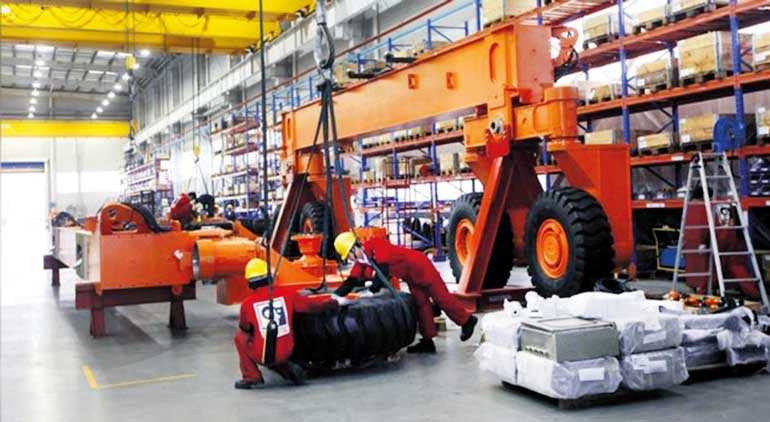Monday Mar 02, 2026
Monday Mar 02, 2026
Monday, 31 December 2018 00:00 - - {{hitsCtrl.values.hits}}

BEIJING (Reuters): Earnings at China’s industrial firms in November dropped for the first time in nearly three years, as slackening external and domestic demand left businesses facing more strain in 2019 in a sign of rising risks to the world’s second-largest economy.
The gloomy data points to a further loss of economic momentum as a trade dispute with the United States piles pressure on China’s vast manufacturing sector and as firms, bracing for a tough year ahead, shelve their investment plans, executives say.
Industrial profits fell 1.8% in November from a year earlier to 594.8 billion yuan ($86.33 billion), the National Bureau of Statistics (NBS) said on its website on Thursday. It marked the first decline since December 2015.
The fall in profits largely reflected slowing growth in sales and producer prices as well as rising costs, He Ping of the statistics bureau said in a statement accompanying the data.
Economists expect earnings to continue to worsen next year, weighed down by smaller gains in industrial prices due to cooling demand, with some even warning of the risk of deflation.
“Soft economic indicators such as producer prices, industrial output and orders all point to further pressure on corporate profitability,” said Nie Wen, a Shanghai-based analyst at Hwabao Trust, adding that firms’ revenues have been hit by shrinking demand.
“Industrial profits next year might very well post a 5-10% decline on average.”
In November, China’s factory price growth slowed to the weakest pace in two years as domestic demand lost further momentum.
“Survival is paramount for us (next year) – we will be more cautious with our investments,” Jiang Ming, chairman of Henan-based Tianming Group that has businesses in healthcare, construction and finance, told Reuters.
“We also need to maintain better cashflows and save our ammunition to prepare for the tight, tough and difficult days ahead.”
China’s economy expanded at the slowest pace last quarter since the global financial crisis, hit by a years-long deleveraging campaign, cooling property market and a trade dispute with the United States, and is expected to cool further next year.
The growing pressure has prompted the government to roll out a range of measures to juice up demand. In a key annual economic conference held this month the country’s top leaders said they will ratchet up support for the economy in 2019 by cutting taxes and keeping liquidity ample, while promising to push forward trade negotiations with the United States.
At the beginning of this month, US President Donald Trump and his Chinese counterpart Xi Jinping agreed to a 90-day truce delaying a planned US tariff hike on 1 January as they negotiate a trade deal.
Yet there is uncertainty whether the two sides can bridge their differences over a myriad of issues - including trade and intellectual property rights – to reach a durable pact. Earnings growth at China’s industrial firms has been cooling since April this year as factory price gains slowed on the back growing strains in the global economy. The bitter trade war with the United States has also pressured overall output and demand in a blow to business investment plans.
For the first 11 months, profits at industrial firms rose 11.8% from the same period a year earlier to 6.1 trillion yuan, slowing from a 13.6% increase in January-October. In the same period, earnings growth at state-owned industrial enterprises also cooled.
Upstream sectors such as oil extraction, coal and metal mining still commanded the lion’s share of profit gains in the 11-month period but again their growth softened in November.
Profits for oil and natural gas extraction rose 333% in the first 11 months of the year, easing off from a 371% jump for January-October.
“The next drag on profits would likely come from upstream sectors where raw material prices have been sliding fast,” Hwabao Trust’s Nie said.
With the arrival of winter, industrial output has taken a hit as the government intensifies a crackdown on pollution to restrict production in smoke-belching factories.
China’s top steelmaking city Tangshan asked steel mills earlier this month to cut extra output during 9 and 31 December, which is an additional reduction on top of that ordered during the winter heating season.
All of this pointed to more bad news for businesses next year.
“We expect the downtrend in industrial profit growth to extend into 2019 given weakening domestic demand, the continued credit downcycle and an escalation in the China-US trade conflict,” Nomura analysts said in a note to clients.